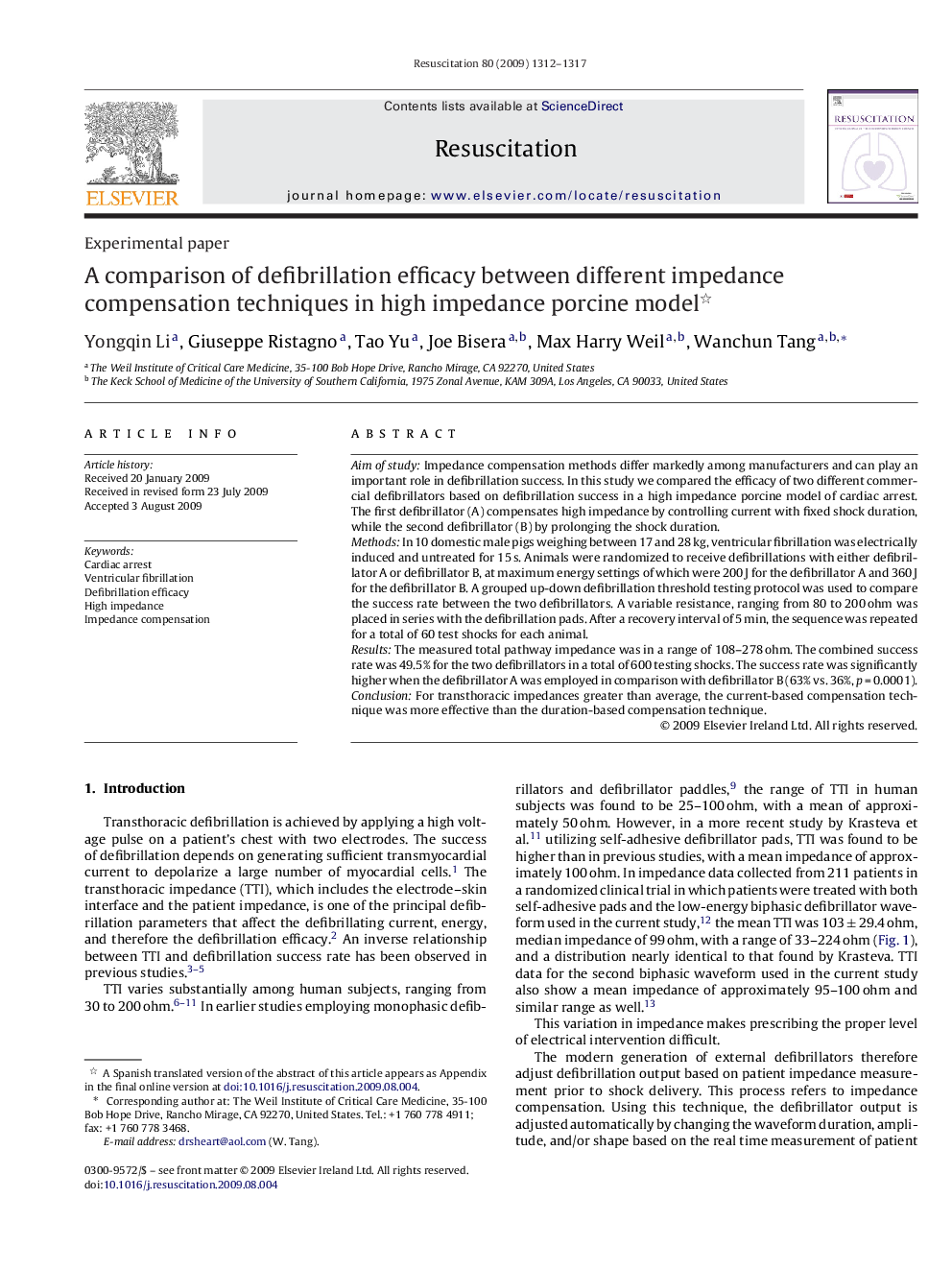| کد مقاله | کد نشریه | سال انتشار | مقاله انگلیسی | نسخه تمام متن |
|---|---|---|---|---|
| 3010268 | 1181508 | 2009 | 6 صفحه PDF | دانلود رایگان |

Aim of studyImpedance compensation methods differ markedly among manufacturers and can play an important role in defibrillation success. In this study we compared the efficacy of two different commercial defibrillators based on defibrillation success in a high impedance porcine model of cardiac arrest. The first defibrillator (A) compensates high impedance by controlling current with fixed shock duration, while the second defibrillator (B) by prolonging the shock duration.MethodsIn 10 domestic male pigs weighing between 17 and 28 kg, ventricular fibrillation was electrically induced and untreated for 15 s. Animals were randomized to receive defibrillations with either defibrillator A or defibrillator B, at maximum energy settings of which were 200 J for the defibrillator A and 360 J for the defibrillator B. A grouped up-down defibrillation threshold testing protocol was used to compare the success rate between the two defibrillators. A variable resistance, ranging from 80 to 200 ohm was placed in series with the defibrillation pads. After a recovery interval of 5 min, the sequence was repeated for a total of 60 test shocks for each animal.ResultsThe measured total pathway impedance was in a range of 108–278 ohm. The combined success rate was 49.5% for the two defibrillators in a total of 600 testing shocks. The success rate was significantly higher when the defibrillator A was employed in comparison with defibrillator B (63% vs. 36%, p = 0.0001).ConclusionFor transthoracic impedances greater than average, the current-based compensation technique was more effective than the duration-based compensation technique.
Journal: Resuscitation - Volume 80, Issue 11, November 2009, Pages 1312–1317